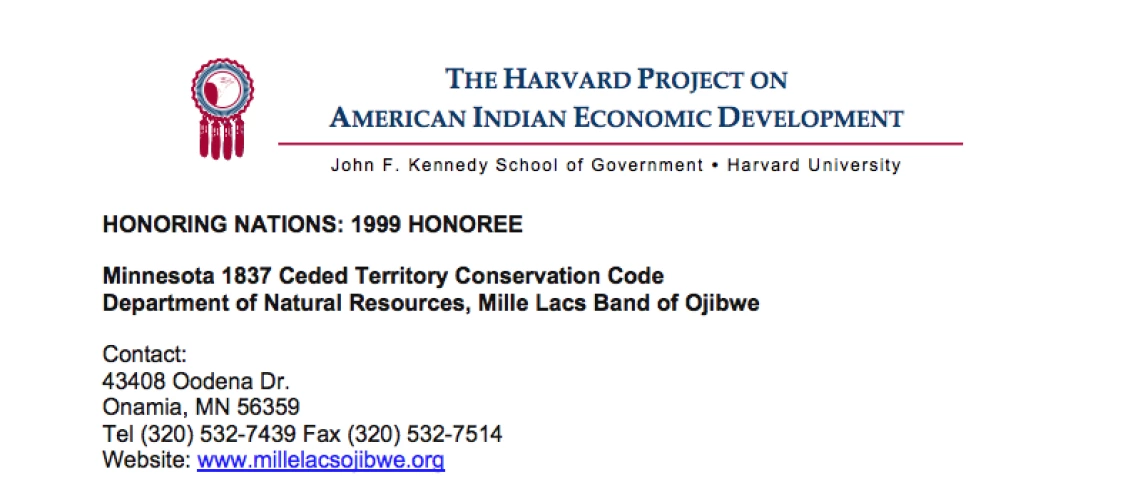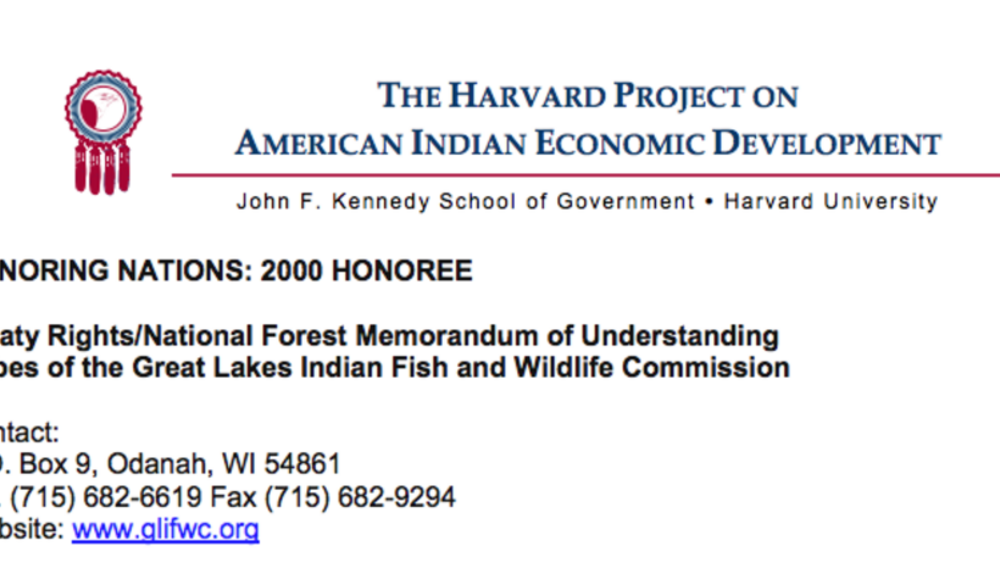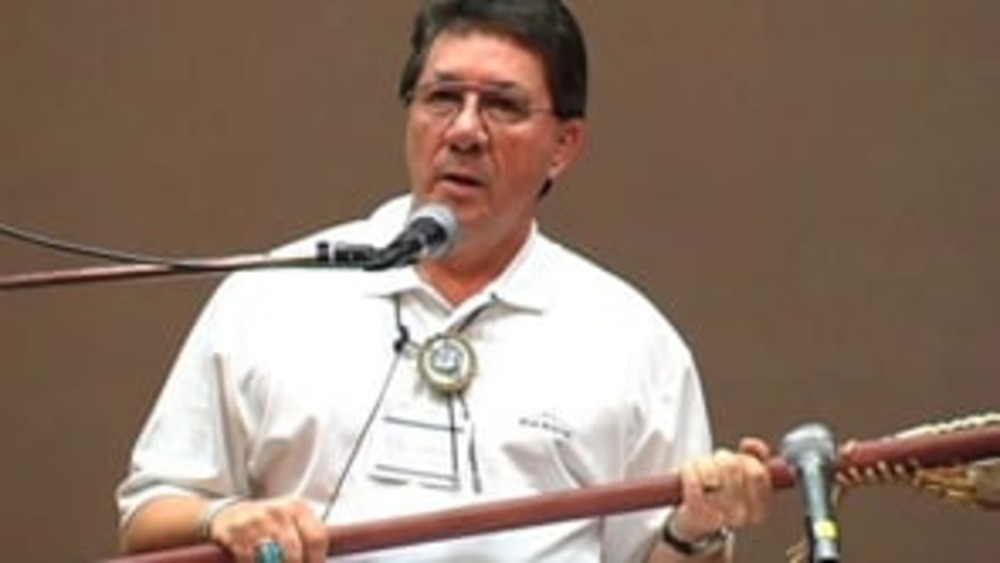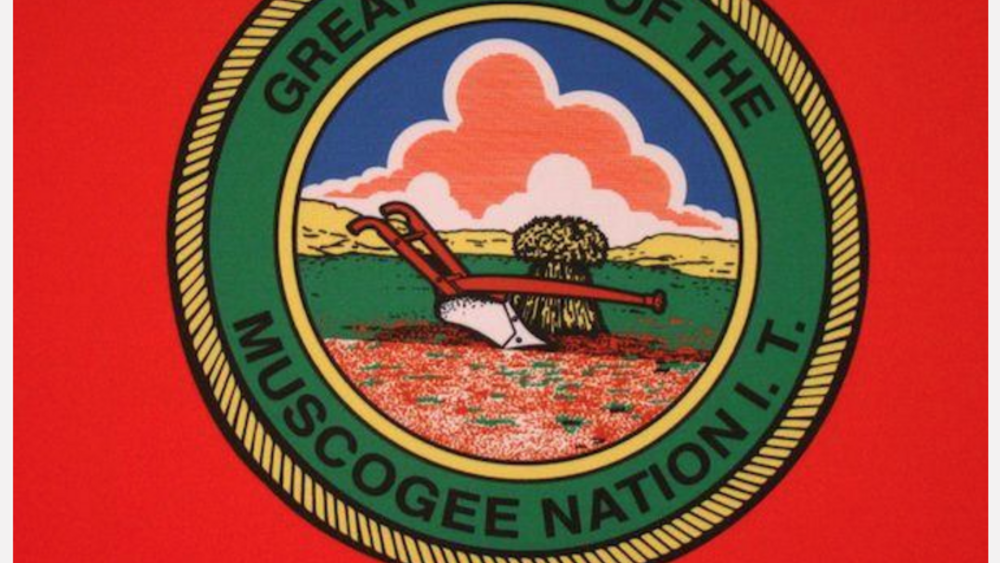In 1997, the Band successfully developed a conservation code that enables the Tribe to exercise its treaty rights to hunt, fish, and gather. The Code sets out detailed hunting and fishing regulations for Band members that protect the natural resources while allowing for the continuation of traditional practices. The Conservation Code has endured challenges in district courts, appeals courts, and the Supreme Court, which ruled in March 1999 that Band citizens retain their rights to hunt, fish, and gather in east-central Minnesota under Band regulations. Crucially, good will between Band members and non-Indians has grown. The Code demonstrates that tribes can successfully develop, implement, and monitor important natural resource programs in cooperation with non-Indian governments.
Additional Information
"Minnesota 1837 Ceded Territory Conservation Code". Honoring Nations: 1999 Honoree. The Harvard Project on American Indian Economic Development, John F. Kennedy School of Government, Harvard University. Cambridge, Massachusetts. 2000. Report.




